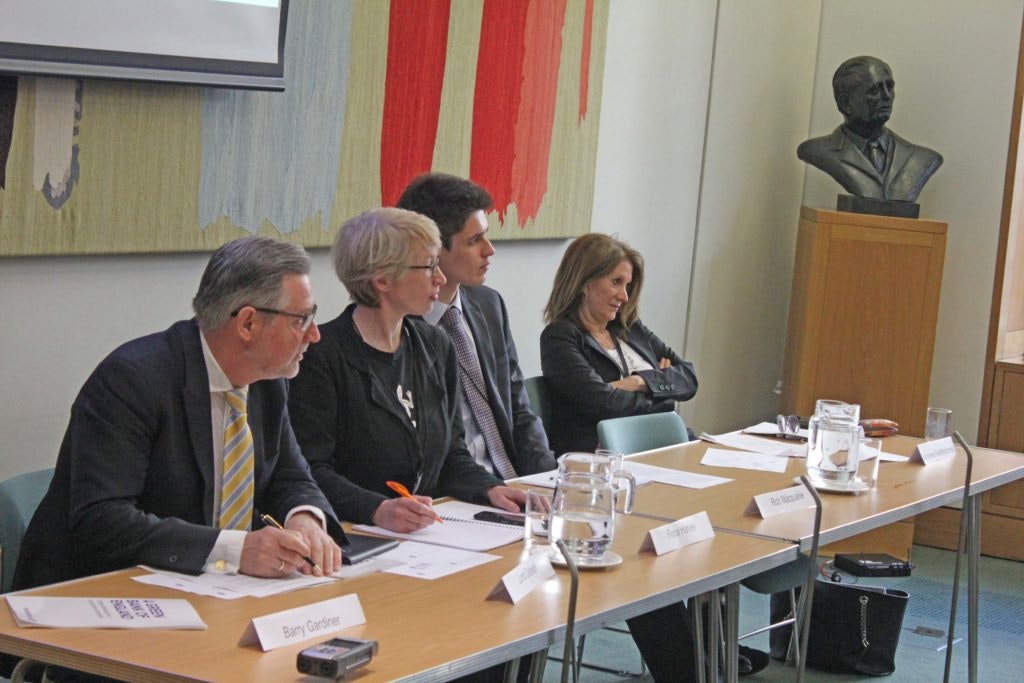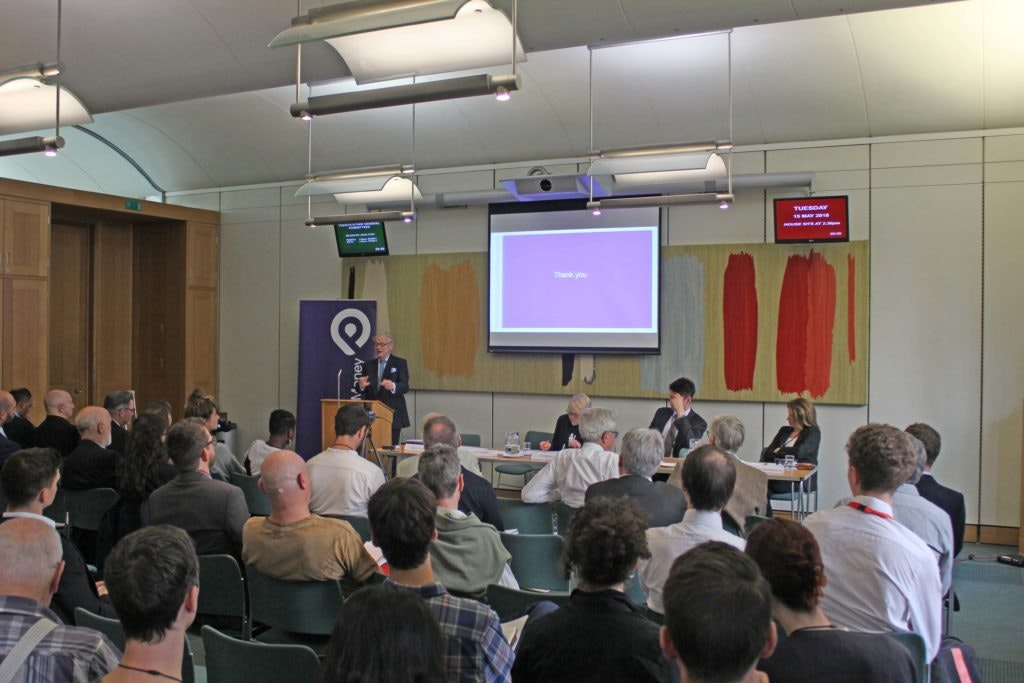‘A Green Bank of England’ Paper Launch Event

“The Bank of England must play a central role in preventing climate catastrophe and lead the transition to a low-carbon economy. Right now it isn’t doing enough. Here’s what needs to change”
On Tuesday 15th May, Positive Money launched a new report – ‘A Green Bank of England: Central Banking for a Low-Carbon Economy’ – at an event in Parliament featuring a high-level panel. Rob Macquarie, economist at Positive Money and author of the report, introduced the session with a presentation and our argument: that political leaders should reform the Bank’s mandate to take account of environmental sustainability.
Chaired by Fiona Harvey (an environmental journalist at The Guardian), the panel included Shadow Minister for Climate Change MP Barry Gardiner, Liberal Democrat Spokesperson for Energy and Climate Change Baroness Featherstone, and Lord Deben, Chair of the Committee on Climate Change, the independent advisory body on UK climate policy.
Following Rob’s introduction, Barry Gardiner MP began with a quote from the Queen herself, when she pointedly asked several economics professors of the financial crisis: ‘why did we not see it coming?’ Gardiner said this question still resonates with lots of people, who feel an anger and anxiety about the financial system. And yet, he pointed out that in climate change we confront an even greater error. “We face the economic catastrophe of climate change,” Gardiner said, “and our children will ask us: “given that you did see it coming, why on earth did you not take all the necessary steps to avert it?””
After making the case for the urgent need to invest in the future, low-carbon economy, the Shadow Minister called the report “a tremendous starting point on how the Bank of England ought to go about fulfilling” a new environmental role.
The panel agreed that the Bank deserves praise for its vision and leadership on the climate issue. High-profile speeches by its Governor, Mark Carney, have done much to bring the scale of the problem to the attention of the international community. However, Positive Money’s report identifies several barriers to further action, inherent to how the Bank perceives its responsibilities given its legal mandate.

Gardiner claimed that “what we need is a central bank that better understands its critical role in dealing with the climate crisis. The Bank of England has a privileged position in the centre of our economic system. It has the power to enact a radical shift, much as it did in the aftermath of the global recession. Back then, in the face of a banking crisis, public institutions bailed out the banking sector. Now, it’s time to bail out the climate.”
Next to the podium was Lord Deben, Chair of the Committee on Climate Change, who gave his support to the report’s argument, saying “the Bank of England has to take much tougher measures to integrate its acknowledgement of the dangers of climate change with its actual policies”, and that he agreed “totally” with some of our proposals for how to do so. Asked to discuss monetary financing by the Bank of green public investment, he said “this is clearly the direction in which we ought to be moving.”
Lord Deben pointed to international organisations and experts, like the IMF and those gathered at the Davos forum, who are well aware that climate change is “the most disruptive force to economic and financial stability” and yet seem slow to take the necessary action. “We’ll destroy ourselves by not dealing with climate change,” he warned.
To our recommendations Lord Deben added his own reflections, arguing that the Bank of England could use its weight to support high-carbon firms that want to transition to a new, sustainable business model, while influencing government ministers themselves to get serious on the climate crisis. He urged us all, in government, business, and our daily lives, to take a “holistic” view of climate change: we can “no longer compartmentalise” the issue.
Last to the panel was Baroness Featherstone, the Liberal Democrat Spokesperson for Energy and Climate Change, who stressed that despite the urgency of climate change and The Paris Agreement, there has been a lack in direction in the steps to the transition towards a green economy.
She praised Positive Money for “such a comprehensive piece of work” as well as driving this agenda forward. She also emphasised the need for the Bank of England to read the report and “take the advice in it seriously” pointing to how it could give the UK the opportunity to be the green finance capital of the world.
The event concluded with several thoughtful questions from the audience, including on financial regulation to favour green lending, which metrics and measures of the economy a green Bank of England would need to use, and whether it would make sense for the UK to implement these reforms unilaterally out of the international community. Thank you to all those who attended.
